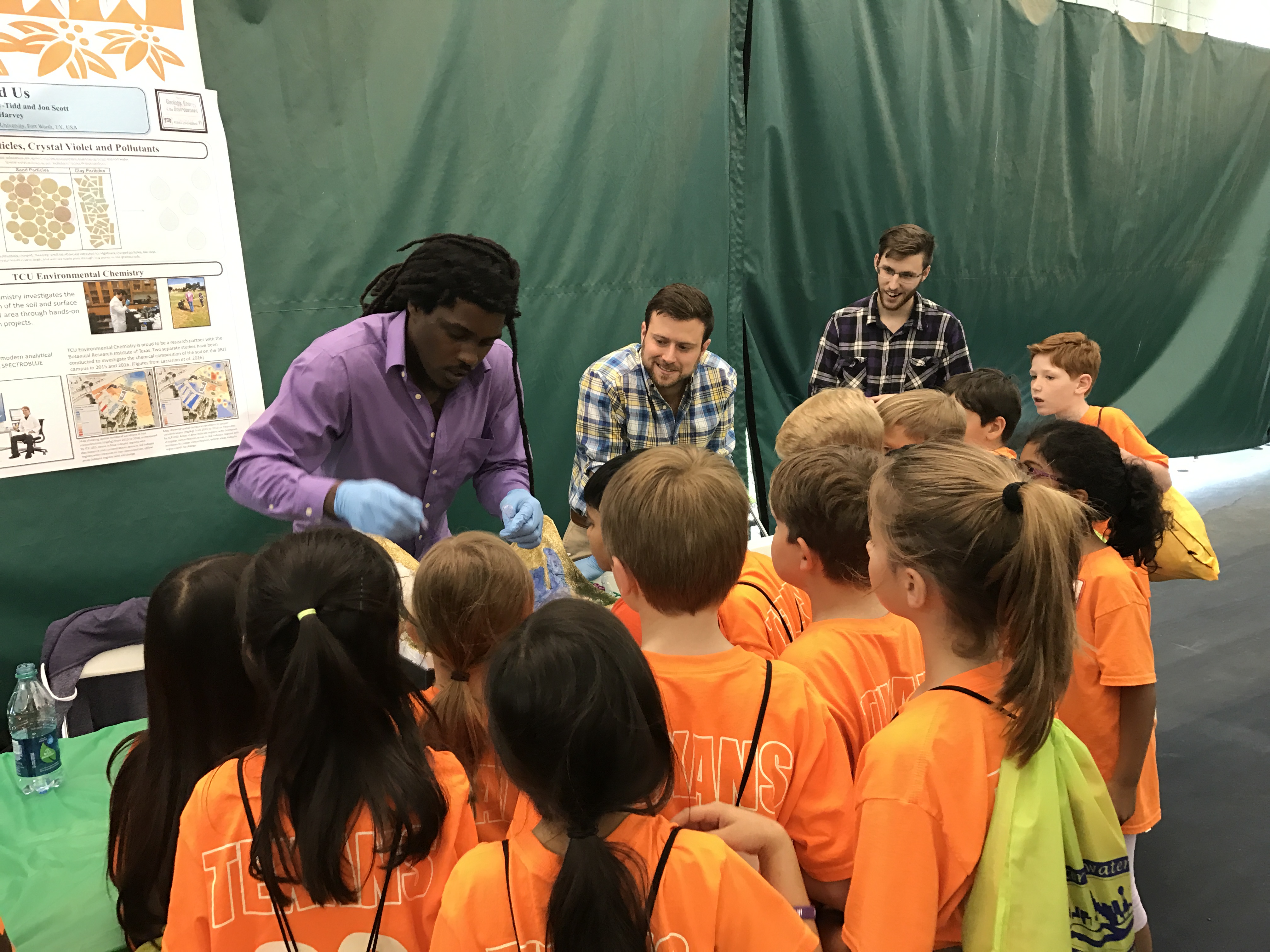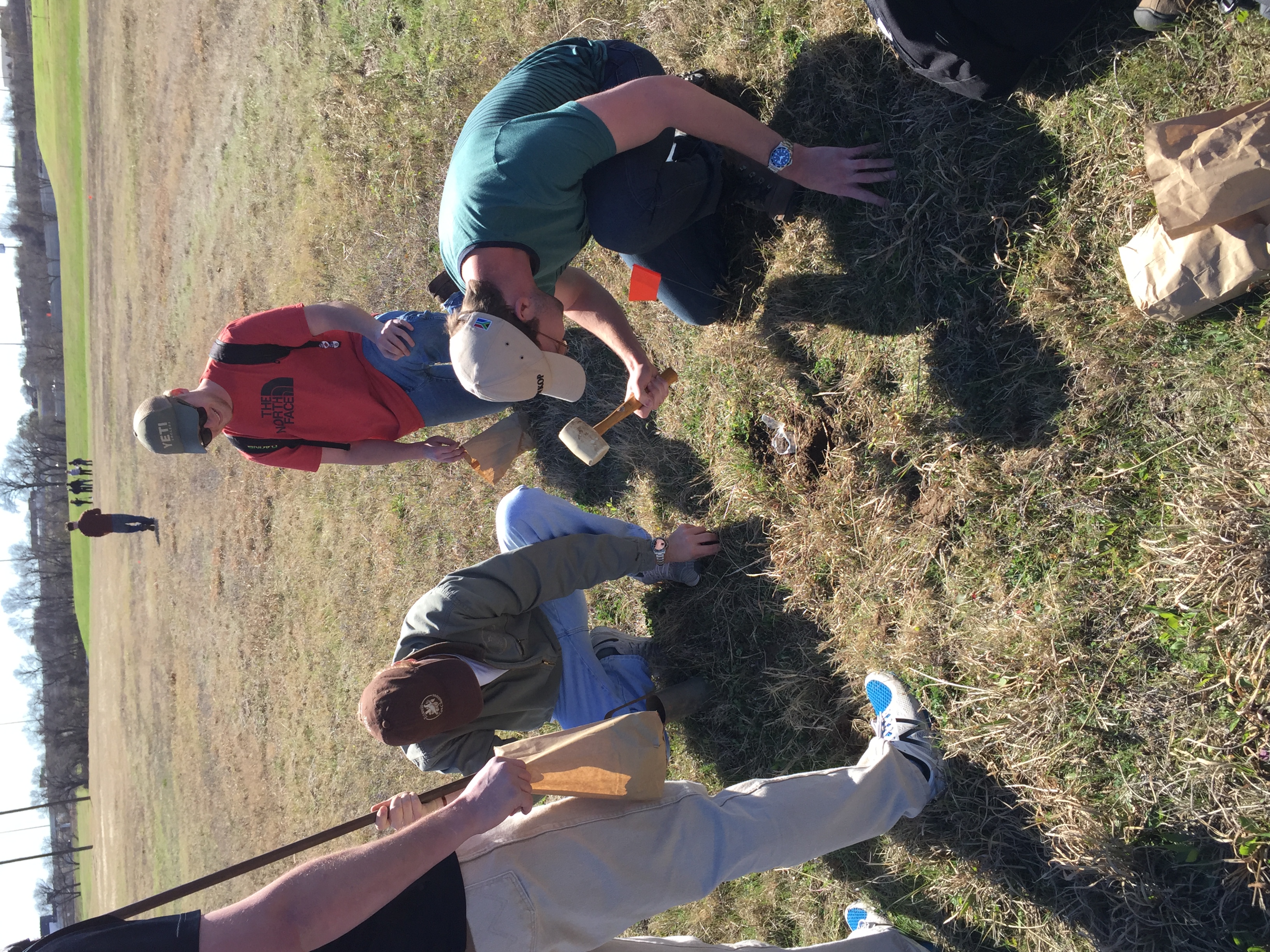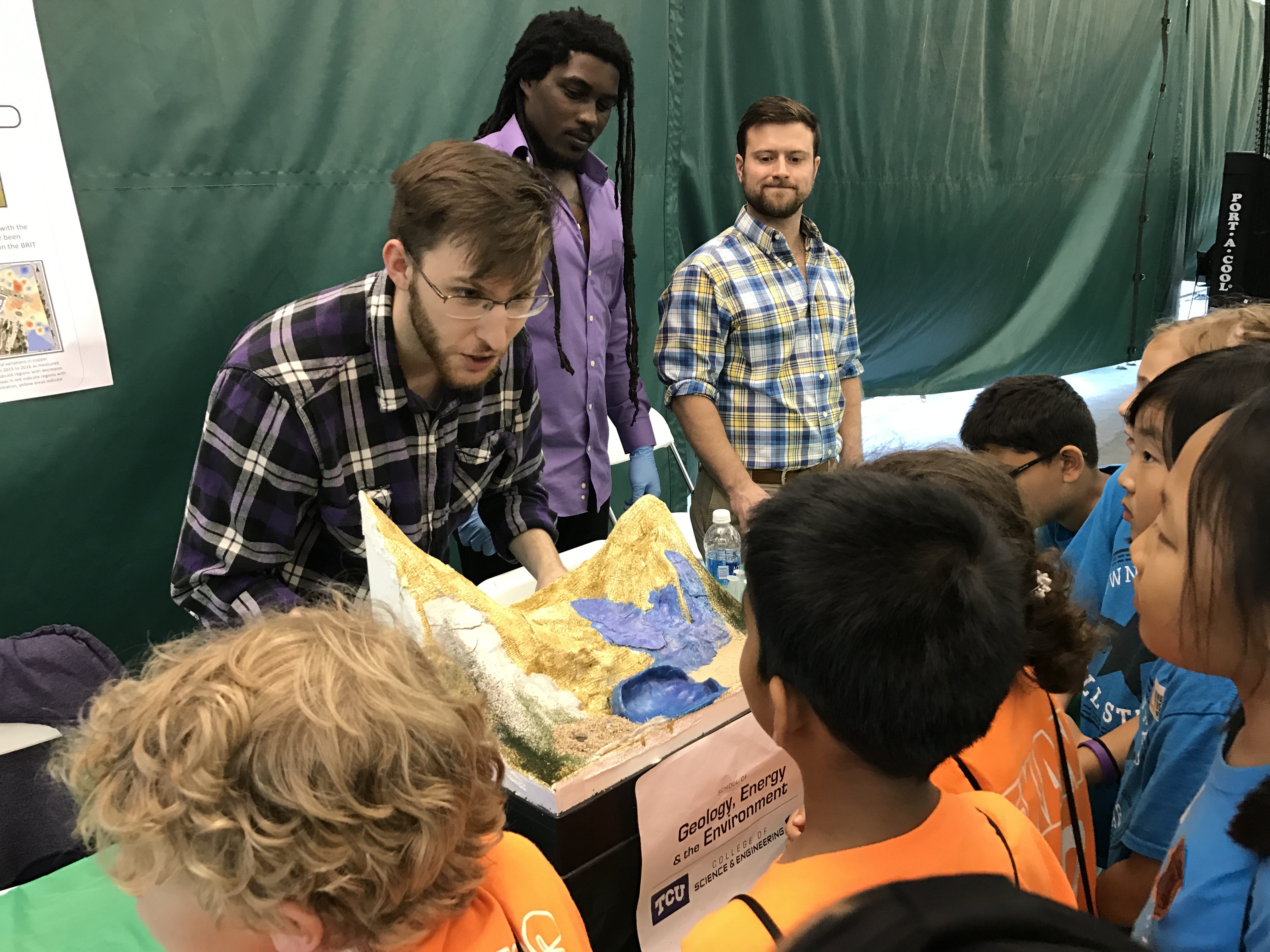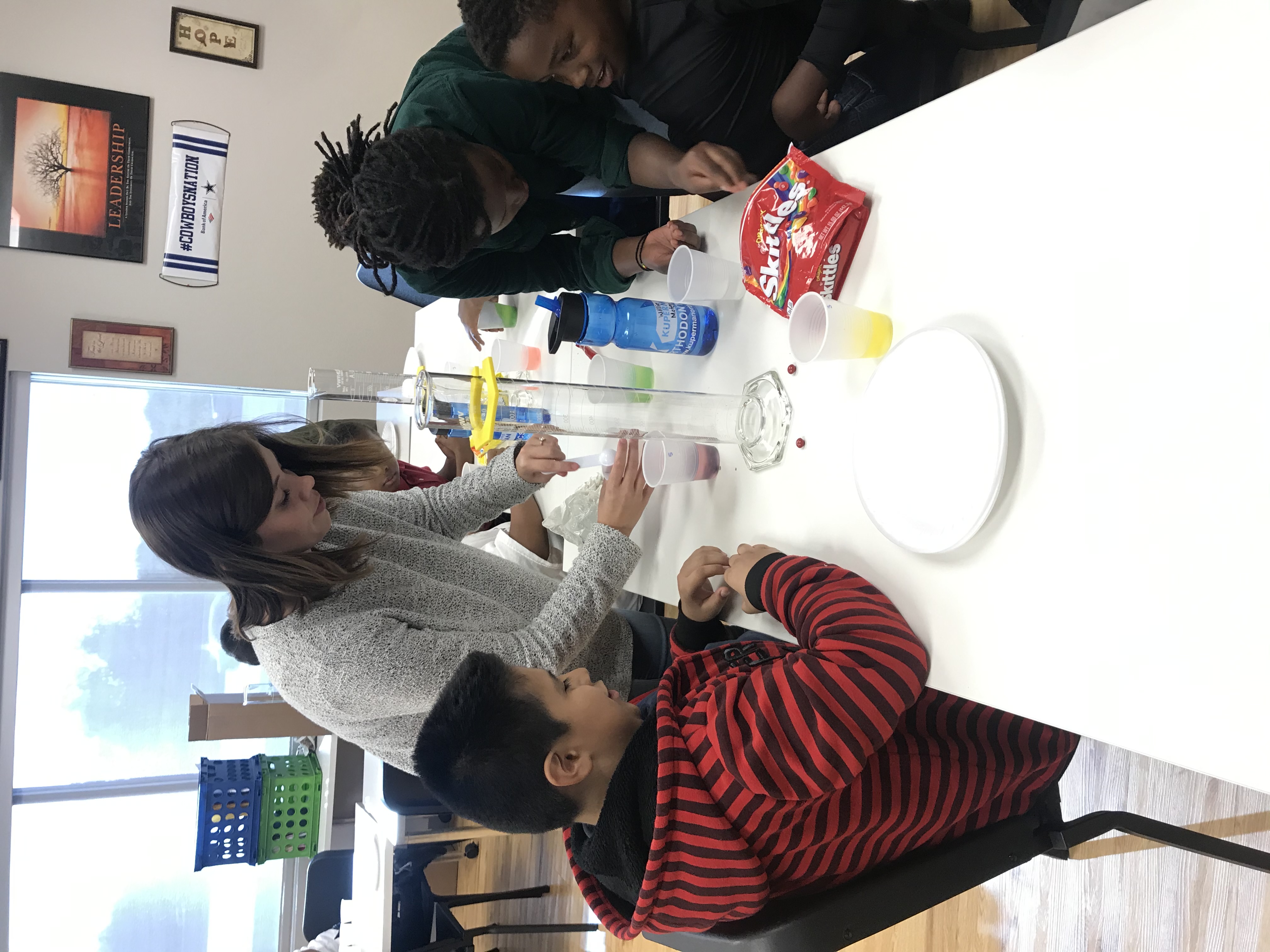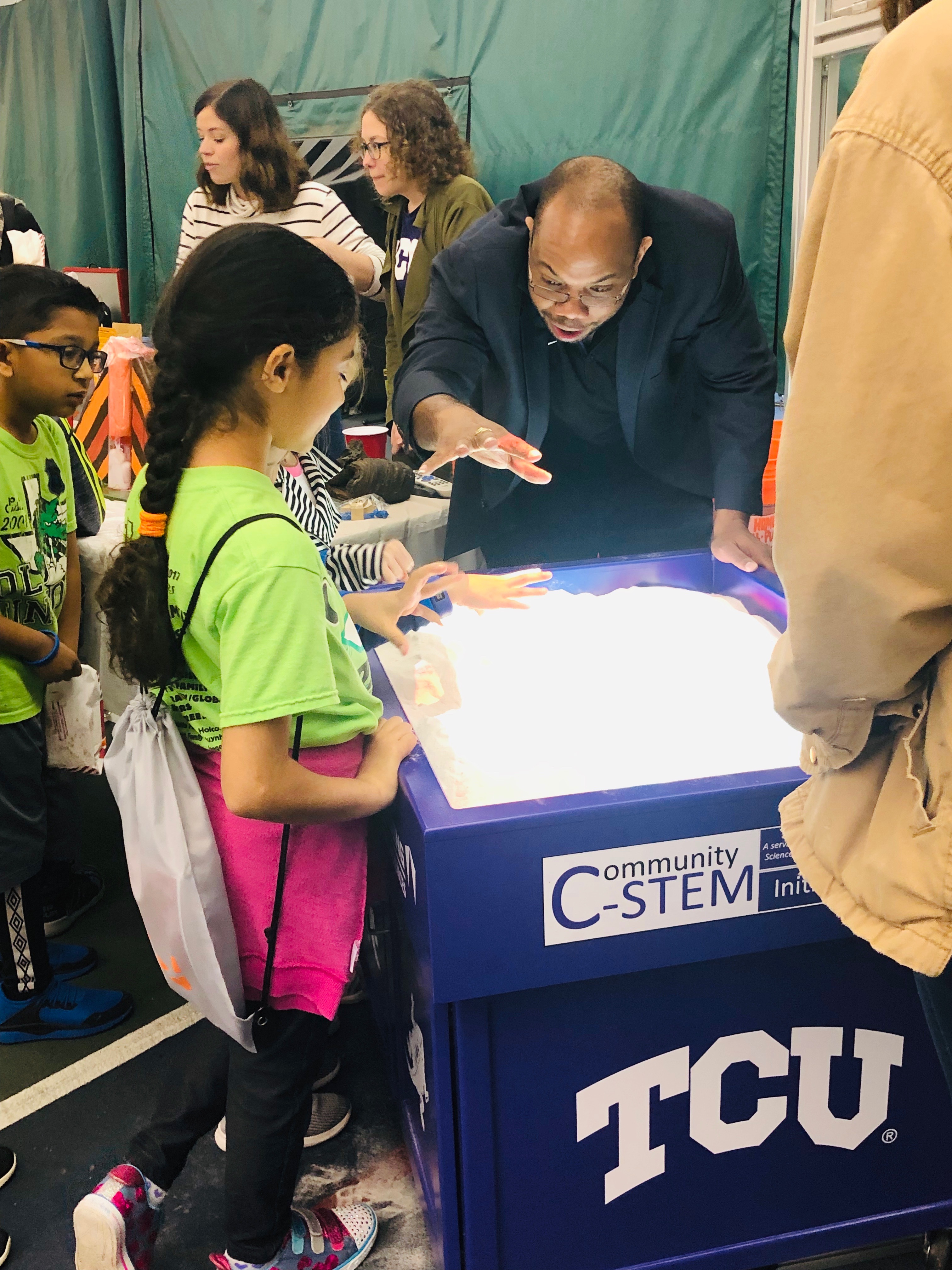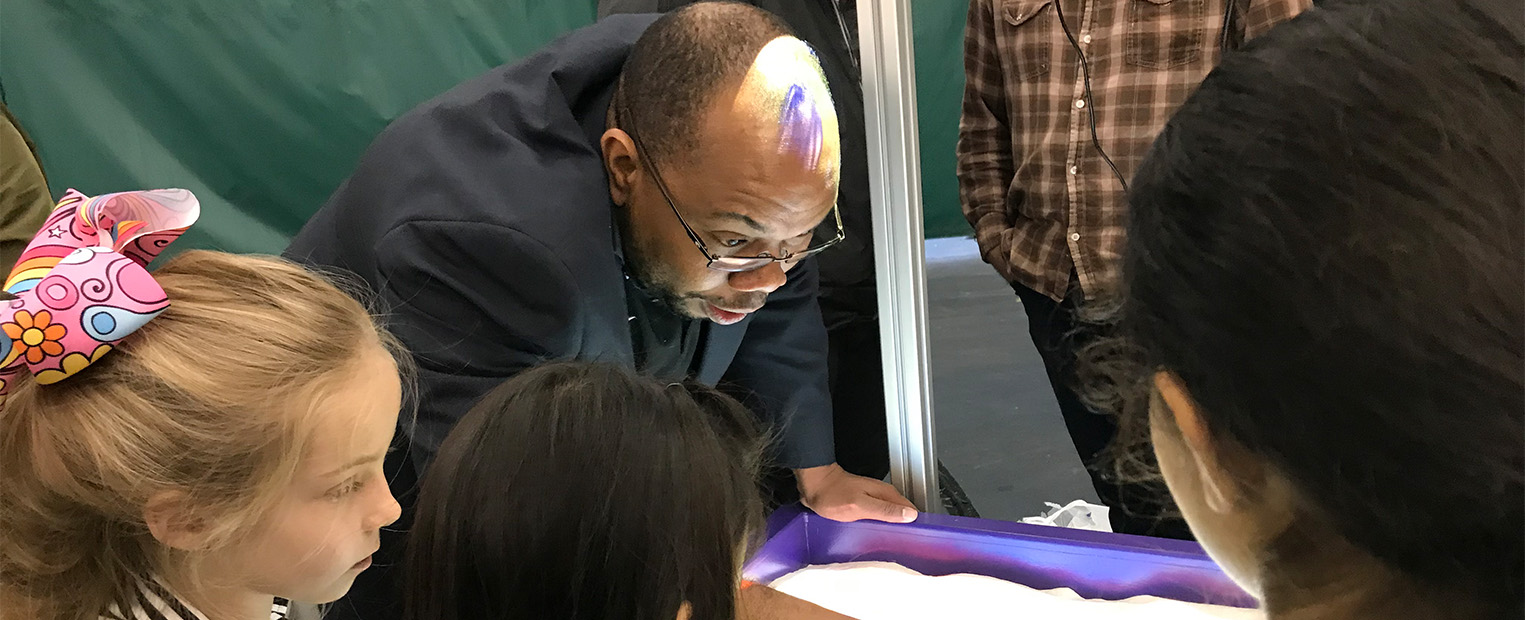Omar Harvey understands the benefits of service learning for his students. Through the opportunities he presents, they learn more about the community and themselves while fulfilling a local need and meeting classroom or degree requirements. Harvey believes that service learning is important because it connects what is taught in the classroom with real-world experiences and instills the habit of performing a service for others. Students who engage early on often continue service work for the rest of their lives.
Tell us about your service-learning endeavors, and how you have incorporated it into your course?
Well, I’ve done this in a series of ways. I incorporate three frameworks for service learning for my students. The first is through K-12 outreach. We typically come up with a theme that we want to pursue, such as energy or food insecurity. Teachers will often offer topics that are difficult to relate to their students. Then I will teach about this topic in class and ask my students to design an activity in which they can transfer their knowledge in a way that’s applicable to a high school, middle school or elementary school students. I instruct them that it must be hands on…no lectures. They will do fun activities like performing density experiments or creating waterwheels. Other areas where I incorporate service learning is through work with non-profit organizations and having students identify issues in the community that they will then design an independent research project to address.
What kind of activities were you and your students involved in during past projects?
Currently we are focused on food insecurity. In the past, we have focused on groundwater pollution. The students have tested water in Fort Worth for nitrate contamination and levels of pharmaceuticals in the water. We also visit urban farms and analyze soil, which provides baseline data that tells what and where things should be planted.
Can your share any outcomes from your projects?
From the TCU perspective, we’ve seen much success among the students that have participated in these projects. A lot of their LinkedIn profiles will often show this course as being especially impactful on them. These projects also promote a collaborative effort between departments and colleges on campus. From the community perspective, we have developed strong links whereby people now know that TCU, and particularly the College of Science & Engineering, is out doing good things. Our efforts have also led to recently being given a federal grant to continue our work.
What are your next steps for service learning?
For the time being, I will be staying in the vein of food insecurity. Another service learning tool that I’m interested in is developing a science fair for the College of Science & Engineering that brings in the community with all departments participating. I will also be focused on expanding our reach. Currently we are mainly active in southeast Fort Worth. I’d like to reach more people in the DFW Metroplex.
Learn more about Service Learning at TCU and the Department of Geological Sciences.
